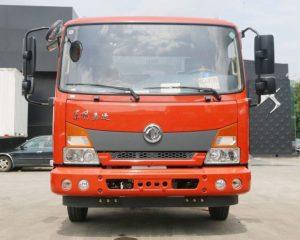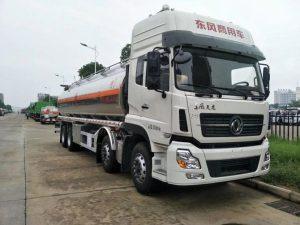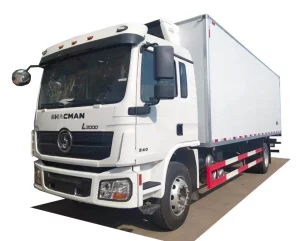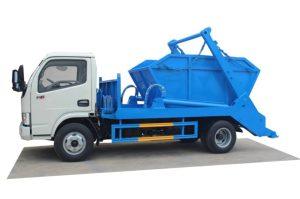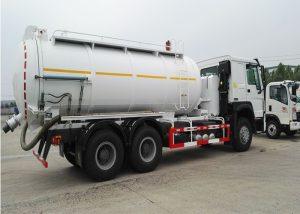Monday to Saturday - 8:00 -17:30
Lorry Fuel Capacity: Understanding the Essentials for Efficient Operation
Introduction
Fuel capacity in lorries is an essential aspect of logistics and transportation management. The lorry fuel capacity determines how far a vehicle can travel before needing to refuel, impacting efficiency, cost, and planning. In this article, we will explore everything there is to know about lorry fuel capacity, including factors that influence it, different types of lorries, practical tips for improving fuel efficiency, and answers to common questions about fuel capacity in lorries.
Understanding Lorry Fuel Capacity
Lorry fuel capacity refers to the volume of fuel that a lorry’s tank can hold, typically measured in liters or gallons. Understanding a lorry’s fuel capacity is crucial for fleet managers, logistics providers, and drivers. It directly affects the operational range of the vehicle and influences overall fuel costs.
Factors Influencing Fuel Capacity
Several factors can influence the fuel capacity of a lorry, including:
- Type of Lorry: Different lorries are designed for different purposes, resulting in varying fuel tank sizes.
- Manufacturer Specifications: Each manufacturer may have its own specifications for fuel tank size.
- Weight Considerations: Heavier lorries may require larger fuel tanks to maintain performance.
- Regulatory Standards: Emission standards may influence tank design and size.
Types of Lorries and Their Fuel Capacities
Understanding the various lorry types and their respective fuel capacities helps operators choose the right vehicle for their needs. Here are some common types of lorries:
| Type of Lorry | Typical Fuel Capacity (liters) | Common Uses |
|---|---|---|
| Light Duty Lorry | 60-120 | Local deliveries, small to medium loads |
| Medium Duty Lorry | 120-200 | Regional deliveries, heavier loads |
| Heavy Duty Lorry | 200-400 | Long-haul transport, construction materials |
| Articulated Lorry | 300-600 | Heavy freight transport, multiple goods |
Calculating Operating Range Based on Fuel Capacity
The operating range of a lorry can be calculated using its fuel capacity and its fuel consumption rate. Understanding this calculation helps drivers and fleet managers plan routes and refueling stops effectively.
Formula for Operating Range
The formula to estimate the operating range of a lorry is:
Operating Range = Fuel Capacity (liters) / Fuel Consumption (liters per kilometer)
Example Calculation
If a lorry has a fuel capacity of 200 liters and consumes fuel at a rate of 0.2 liters per kilometer, the operating range would be:
Operating Range = 200 liters / 0.2 liters/km = 1000 kilometers
Importance of Regular Maintenance on Fuel Capacity
Maintaining a lorry is just as important as understanding its fuel capacity. Regular maintenance can optimize fuel efficiency, enhance engine performance, and extend the life of the vehicle.
Key Maintenance Tips to Enhance Fuel Efficiency
- Regular Oil Changes: Ensure the engine runs smoothly and efficiently.
- Tire Care: Keeping tires properly inflated and rotated can prevent unnecessary fuel consumption.
- Fuel Quality: Use high-quality fuel to prevent clogs and improve performance.
- Engine Diagnostics: Regular checks on engine performance can catch issues before they become costly.
Impact of Load Weight on Fuel Capacity
The weight of the load a lorry carries significantly affects its fuel consumption. Heavier loads require more power from the engine, resulting in increased fuel use.
Managing Load Weight for Optimal Fuel Efficiency
To optimize fuel efficiency, it is essential to:
- Balance loads to prevent overloading.
- Minimize excess weight by removing unnecessary items.
- Distribute weight evenly to improve stability and handling.
Enhancing Fuel Efficiency: Driving Practices
Fuel efficiency can also be enhanced through better driving practices. Educating drivers about fuel-efficient driving techniques can lead to significant savings over time.
Fuel-Efficient Driving Techniques
- Avoid Rapid Acceleration: Gradual acceleration can conserve fuel.
- Maintain Steady Speeds: Use cruise control on highways where appropriate.
- Avoid Frequent Braking: Anticipate traffic flow and brake gently.
- Reduce Idling: Turn off the engine during long stops to save fuel.
Future Trends in Lorry Fuel Capacity
The logistics industry is constantly evolving, and so are the technologies involved in fuel management. Emerging trends include:
Alternative Fuel Sources
The increased interest in electric lorries, hydrogen fuel cells, and biofuels is transforming fuel capacity considerations. These vehicles often have different tank requirements and configurations, impacting overall fuel management.
Fuel Tank Innovations
Innovative designs in fuel tanks, including lightweight materials and improved shapes, help to maximize fuel storage while minimizing weight. These advancements are crucial as regulatory standards continue to evolve.
Conclusion
Understanding lorry fuel capacity is essential for effective transport and logistics management. By being aware of factors affecting fuel capacity, calculating operational ranges, maintaining vehicles, optimizing load weight, implementing fuel-efficient driving practices, and keeping an eye on future trends, fleet operators can significantly enhance efficiency and reduce costs.
Frequently Asked Questions (FAQs)
1. What is the average fuel capacity of a lorry?
The average fuel capacity of a lorry varies greatly by type, ranging from 60 liters for light-duty lorries to over 600 liters for articulated lorries.
2. How does load weight affect a lorry’s fuel consumption?
Increased load weight leads to higher fuel consumption as the engine must work harder to move and maintain speed, resulting in reduced fuel efficiency.
3. What are the benefits of using high-quality fuel in lorries?
High-quality fuel can lead to better engine performance, improved fuel efficiency, and reduced emissions, ultimately saving costs and reducing environmental impact.
4. Can driving habits really affect fuel capacity?
Yes, adopting fuel-efficient driving practices, such as steady speeds and avoiding rapid acceleration, can lead to significant improvements in fuel efficiency.
5. Are there any new technologies affecting lorry fuel capacity?
Yes, emerging technologies such as electric vehicles, hydrogen fuel cells, and innovations in fuel tank design are all impacting how we think about fuel capacity in lorries.
6. How often should I perform maintenance on my lorry to ensure efficiency?
Regular maintenance should be performed according to the manufacturer’s guidelines, typically every 5,000 to 10,000 kilometers or as specified in the vehicle’s service manual.


